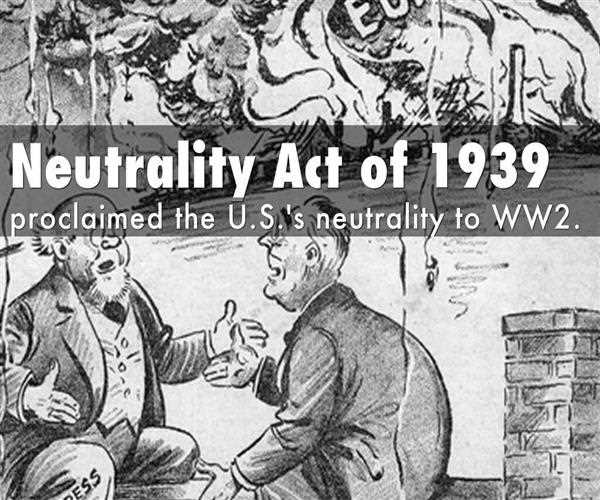In the years after World War I Americans instantly accomplished the conclusion that their country's interest in that war had been a shocking foul up, one which should never be repeated. In the midst of the 1930s, as needs are, they looked for after different frameworks went for staying away from war.
At first, the huge players in this effort were American peace social requests, a noteworthy number of which were a bit of greater worldwide advancements.

Their arrangement called for tremendous scale neutralization and an all-inclusive course of action to invalidate war. Their undertakings turned out to be productive, as 1922 saw the consenting to of a vital course of action among the enormous powers to lessen their amounts of warships. Following six years by far most of the world's nations denoted the Kellogg-Briand Pact, in which the signatories promised never again to go to war with each other.
In any case, events morally justified on time to mid-1930s drove various Americans to assume that such assumptions were inadequate. Everything considered, they didn't dishearten Japan from including Manchuria in 1931, nor four years sometime later did they keep the German government from supporting a gigantic new arms advancement, or Italy from assaulting Ethiopia. The U.S. Congress responded by passing the Neutrality Acts, a movement of laws denying arms arrangements and credits to countries at war, with the desire this would empty any potential reason that the United States may have for entering a European conflict.
Right when in 1939 war broke out between Germany from one perspective, and Britain and France on the other, President Franklin D. Roosevelt faithfully invoked the Neutrality Acts.
Regardless, he confided in this was an on an exceptionally fundamental level differing war from World War I. Germany, he acknowledged (and most Americans agreed with him) was for this circumstance an undeniable attacker. Roosevelt along these lines hoped to offer assistance to the Allies, while so far keeping the United States out of the war. He began by asking that Congress change the absence of predisposition laws to allow arms arrangements to the Allies. In the two cases the lawmaking body agreed to FDR's recommendation, yet basically after the uncommon practical dialog.
The subject of how incorporated the United States should wind up in the European war significantly isolated the country. From one perspective, Roosevelt and the assumed "internationalists" affirmed that a program of assistance to Great Britain and distinctive countries engaging against Germany would make the genuine U.S. bolster in the war trivial. On the contrary, side stood the people who were called "noninterventionists," who assumed that the president's methodologies were making it continuously likely that the country would end up in another lamentable remote war.
This verbal showdown was at the same time fuming when Japanese flying machine ambushed Pearl Harbor on December 7, 1941. Presently unquestionably, like it or not, the United States would be a full part in the Second World War.